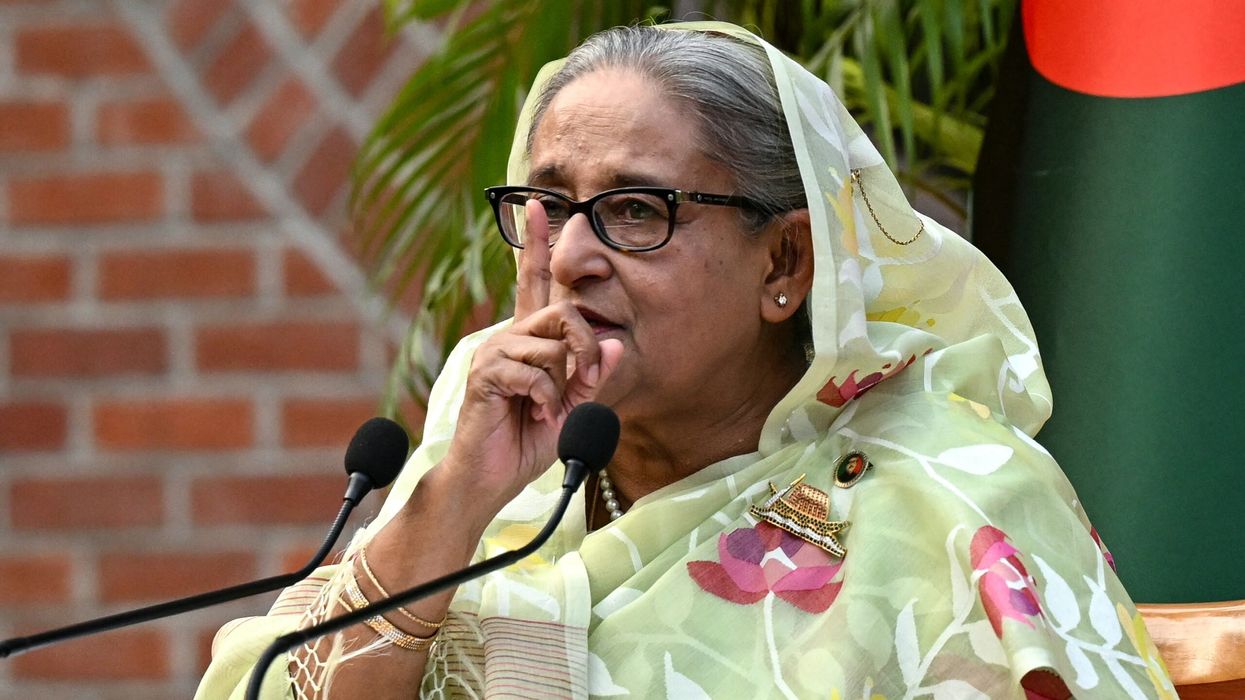INDIAN and Pakistani soldiers exchanged fire across the Kashmir border overnight, India said on Thursday, following deadly strikes and shelling a day earlier.
The violence came after India launched missile strikes on Wednesday morning, which it described as a response to an earlier attack on tourists in Indian-administered Kashmir. Pakistan prime minister Shehbaz Sharif said his country would retaliate.
"We will avenge each drop of the blood of these martyrs," Sharif said in an address to the nation.
India said it had destroyed nine "terrorist camps" in Pakistan in what it called "focused, measured and non-escalatory" strikes. The action followed accusations by New Delhi that Islamabad backed an attack on tourists in Kashmir two weeks ago. Pakistan has denied the charge.
ALSO READ: UK says ready to help India and Pakistan de-escalate tensions
At least 45 people have died on both sides of the border following Wednesday's violence, including children.
Islamabad said 31 civilians were killed by Indian strikes and firing along the border.
New Delhi said 13 civilians and a soldier were killed by Pakistani fire.
Pakistan’s military said five Indian jets had been downed across the border. India has not responded to the claim.
ALSO READ: What is Operation Sindoor, India's strikes in Pakistan?
An Indian senior security source, who asked not to be named, said three Indian fighter jets had crashed within Indian territory.
The largest Indian strike hit an Islamic seminary near Bahawalpur in Pakistan's Punjab province, killing 13 people, according to the Pakistan military.
Madasar Choudhary, 29, said his sister saw two children killed in Poonch, on the Indian side of the border.
"She saw two children running out of her neighbour's house and screamed for them to get back inside," Choudhary said. "But shrapnel got to the children -- and they eventually died."
Muhammad Riaz said Indian strikes had destroyed his home in Muzaffarabad, the main city of Pakistan-administered Kashmir.
"There is no place to live," he said. "There is no space at the house of our relatives. We are very upset, we have nowhere to go."
On Wednesday night, Pakistan military spokesman Ahmed Sharif Chaudhry said there had been firing across the Line of Control and that the armed forces had been authorised to "respond in self-defence" at a "time, place and manner of its choosing".
ALSO READ: India launches strikes on Pakistan after Kashmir attack; dozens killed in border clashes
India’s army on Thursday said its soldiers had used "small arms and artillery guns" at multiple locations overnight and had "responded proportionately". No further details were provided.
India’s defence minister Rajnath Singh said the strikes were a response to last month’s attack in Pahalgam, where gunmen killed 26 people, mainly Hindu men.
New Delhi blamed the Pakistan-based group Lashkar-e-Taiba for the attack. It is designated a terrorist group by the UN. The two countries exchanged threats and diplomatic messages after the incident.
Indian media on Thursday reported high alert in border areas.
"Border districts on high alert," The Hindu reported, while The Indian Express wrote there was "no reason to believe that the Pakistan Army has been chastened by the Indian airstrikes", and that Indian military experts were "aware that Pakistan's armed forces are no pushover".
International leaders have called for calm.
"I want to see them stop," US president Donald Trump said on Wednesday.
Iranian foreign minister Abbas Araghchi is scheduled to meet Indian foreign minister Subrahmanyam Jaishankar in New Delhi on Thursday, after visiting Pakistan earlier in the week.
Analysts said they expected some form of military response from Pakistan.
"India's limited objectives are met," said Happymon Jacob, director of the Council for Strategic and Defence Research in New Delhi.
"Pakistan has a limited objective of ensuring that it carries out a retaliatory strike to save face domestically and internationally. So, that is likely to happen."
He said the situation would "likely end in a few iterations of exchange of long-range gunfire or missiles into each other's territory".
(With inputs from agencies)




















